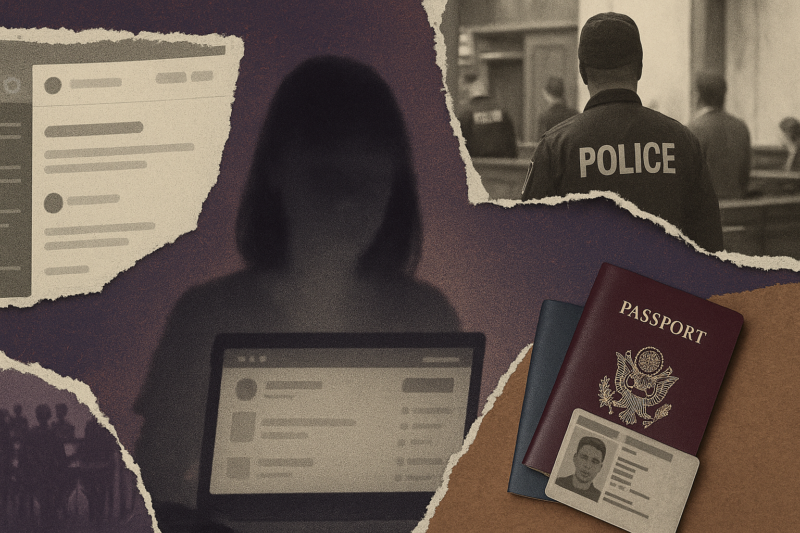
Digital Desire: The Rise And Risks Of Online Sex Creation - Fresh Celebrity News 2025

Unveiling the Digital Bedroom: A New Era of Sex Creation
Hey there, curious reader! Let’s talk about a spicy revolution that’s taken the internet by storm. The adult content industry has morphed into something wildly different in the digital age, thanks to platforms like OnlyFans and Fansly. These hubs have turned everyday folks into online sex creators, letting them produce, share, and cash in on explicit content with just a few clicks.
Gone are the days of shadowy backrooms - this gig has gone mainstream, especially among young adults craving financial freedom or a bold way to express themselves. Fun fact: over a third of young digital creators see this as a legit income stream. With subscription fees and pay-per-view goodies like live-streamed performances or steamy pics, some creators are raking it in - one even reportedly made a cool US$1 million in just 24 hours!
But before you get too starry-eyed, let’s peek behind the curtain. Beneath the glitz of empowerment, there’s a murky world of legal gray areas around age and consent, not to mention ties to human trafficking and organized crime. It’s not all champagne and selfies - there’s a darker side to this digital hustle.
The Dark Side of Desire: Criminal Exploitation Online
Now, let’s get serious for a sec. The ugly truth is that global trafficking cases have spiked by 25% since 2019, and a huge chunk of these involve online sexual exploitation - often targeting kids. Criminal groups are exploiting these popular platforms, using fake job ads, emotional tricks, or debt traps to lure vulnerable young people into creating sexual content for a shadowy global audience.
Take December 2024, for instance. The Royal Thai Police busted an international sex creator ring based in Thailand, nabbing seven suspects from countries like Britain, Germany, Russia, Serbia, and Thailand. These folks weren’t just creating content - they were promoting it to hundreds of thousands of followers on social media. Fast forward to February 2025, and Europol led a massive sting across 19 countries, arresting 25 people linked to distributing AI-generated child sexual abuse material. Yikes, right?
"The internet has become a double-edged sword - a tool for empowerment, but also a weapon for predators who exploit the vulnerable," warns a digital safety advocate.

Navigating the Legal Maze: Age, Consent, and Control
Here’s where things get extra complicated, darling. The legal landscape for digital sex work is a hot mess. While many places allow adults to create and sell spicy content, the rules for checking age and consent are all over the place - or sometimes nonexistent. In Thailand, for example, making and sharing explicit material is flat-out illegal, consent or not, and child sexual abuse material is a major no-no. Yet, digital sex work isn’t clearly regulated, so adults and even minors slip into this world, often with fake IDs.
This sparks some tough questions. Should minors be banned from this space, even if they say they’re okay with it? How do platforms and authorities even verify consent? And when young people, especially those in tough financial spots, choose this path, is their ‘yes’ truly free? Some cheer for personal freedom, while others argue that consent under pressure isn’t consent at all.
Then there’s the issue of long-term impact. Many young creators, especially from marginalized communities, don’t fully grasp how posting explicit content online could haunt them later. Criminal groups often swoop in, offering cash or support in exchange for control, turning creators into pawns in a bigger game. It’s a power imbalance that’s hard to escape.
Shielding the Vulnerable: Prevention and Protection
So, what’s the fix, you ask? We need urgent action on multiple fronts to tackle the messy overlap of digital sex work, crime, and youth safety. Governments, educators, and activists must team up for awareness campaigns that spell out the legal, emotional, and personal risks of diving into this industry. Tools like Take It Down, which helps remove non-consensual explicit content online, need to be shouted from the rooftops.
Social media giants can’t just sit pretty either. They’ve got to step up with hardcore preventative measures - think AI to block exploitative content and strict age verification. If they slip up, they should face lawsuits and regulations to keep them in check. Some platforms have already been dragged to court for allegedly failing to protect users from trafficking and exploitation.
Lastly, law enforcement needs to get proactive, not just react after the damage is done. Breaking up criminal networks exploiting digital creators should be priority one, backed by stronger international legal teamwork - like better extradition and evidence-sharing across borders. It’s about sending a loud message: online exploitation won’t be tolerated.
The Double-Edged Sword of Digital Sex Creation
Let’s wrap this up with a reality check. Sex creation in the digital age is the ultimate paradox - borderless, lucrative, and oh-so-complicated. For some young folks, it’s a path to self-expression and a fat paycheck. But for others, it’s a trap set by organized crime, exploiting the vulnerable for profit.
As this industry keeps evolving, so must our efforts to build solid legal and ethical safeguards. We’ve got to protect the most at-risk without stomping on personal freedom, tackling the deep-rooted power imbalances that put kids and young adults in harm’s way. It’s a delicate dance, but one worth perfecting - don’t you think?

Popular
Trending topics











